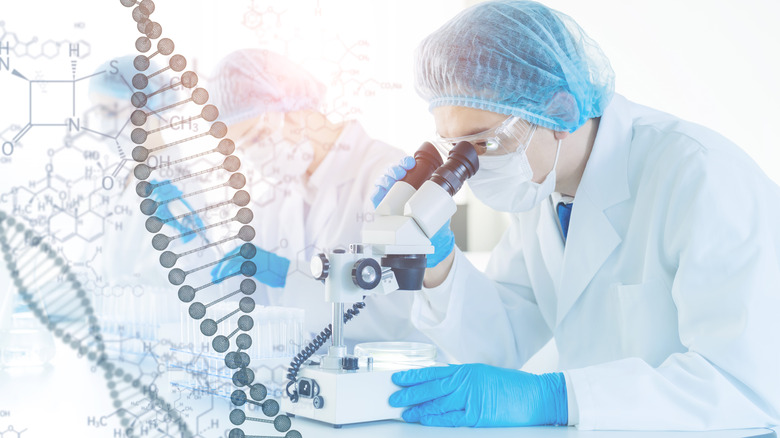Is Addiction Genetic?
Nature versus nurture has been a long-contested debate, especially in the world of health. Are you destined to live with high blood pressure no matter what, or does your environment cause it? Are you born predisposed to depression, or does something happen in your life that makes you depressed? Unfortunately, it isn't that black-and-white — especially when talking about addiction.
Addiction occurs in the brain and is a long-term impairment that affects the way your body craves substances (via Healthline). It's about reward, motivation, and memory, usually including a lack of concern about consequences. Even when someone is aware that their addiction is causing problems in their life, it may be difficult to stop the behavior. In addition to alcohol, the most common drug addictions are nicotine (found in tobacco), THC (found in marijuana), opioids or pain relievers, and cocaine. Eventually, those living with addiction may go through cycles of more mild use, called remission, and more intense use called relapse. Addictions can also worsen over time, disrupting daily life and interfering with work, relationships, and finances.
What causes addiction?
Knowing what causes addiction is important for helping to develop prevention and treatments. Rather than nature or nurture, the answer actually lies in both. According to the National Institute on Drug Abuse, genetics account for nearly half the risk of becoming addicted to substances. However, the environment affects the likelihood of addiction, too. Stressful situations, like the death of a loved one or the loss of a job, can alter systems in the body (via Harvard Medical School). While this doesn't change DNA, it can add information to the existing DNA, changing the way genes are expressed. These changes, known as epigenetics, can particularly impact the brain's reward system, triggering the start of an addiction.
One way that science has proven this is through the use of studies with identical twins (via American Addiction Centers). Identical twins come into the world with identical genetic makeup. Over time, their environments impact them in different ways, marking their DNA with information that shapes their behaviors. Despite being born with the exact same genetic material, this environmental impact can not only influence their risk of addiction but their response to treatment as well. Genetics and environment form a complex relationship when it comes to addiction — even without a genetic predisposition, anyone can still develop an addiction under the right environmental circumstances.


